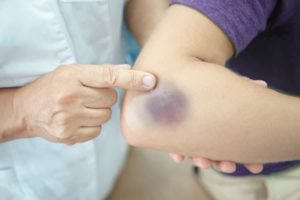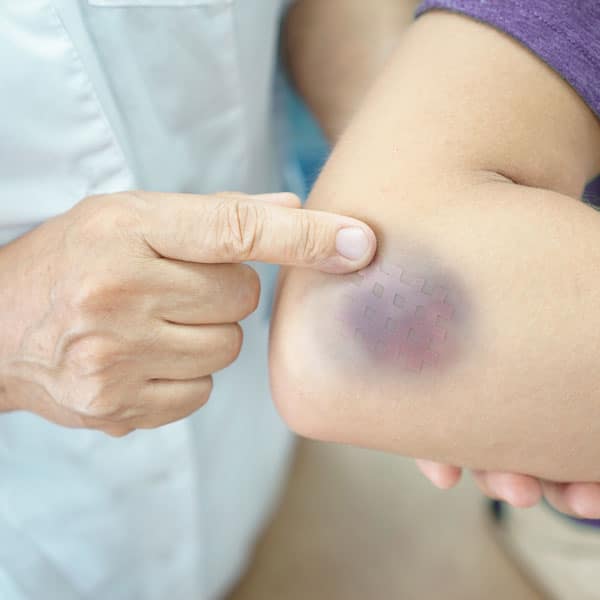Unexpected bruises can be alarming, but most of the time, they are a common part of aging.
 A shiner after a serious bump or knock is expected when you are young. However, older adults may notice that bruises seem to appear out of the blue. What gives?
A shiner after a serious bump or knock is expected when you are young. However, older adults may notice that bruises seem to appear out of the blue. What gives?
Bruises occur when small blood vessels called capillaries break under intact skin. As you age, your skin and blood vessels undergo changes that make them both more prone to injury. Skin becomes thinner and more fragile, which can make any form of injury more likely, and blood vessels lose their elasticity and become more prone to breaking. Some adults also lose the cushioning layer of fat underneath their skin. Without it there to absorb an impact, blood vessels can burst and cause a bruise.
Other factors can make bruising more common, such as your gender—women tend to bruise more easily than men. In addition, medications, including blood thinners and antiplatelet agents, as well as supplements, such as ginkgo biloba, can increase your risk for bruising.
When to Seek Help
If you notice large or frequent bruises that you do not remember getting, or your bruises take a long time to heal, speak with your primary care provider. It may be a sign of an underlying health condition, such as liver problems or low blood platelets.
Need help decoding your bruises? A Summit Healthcare primary care provider can help.

